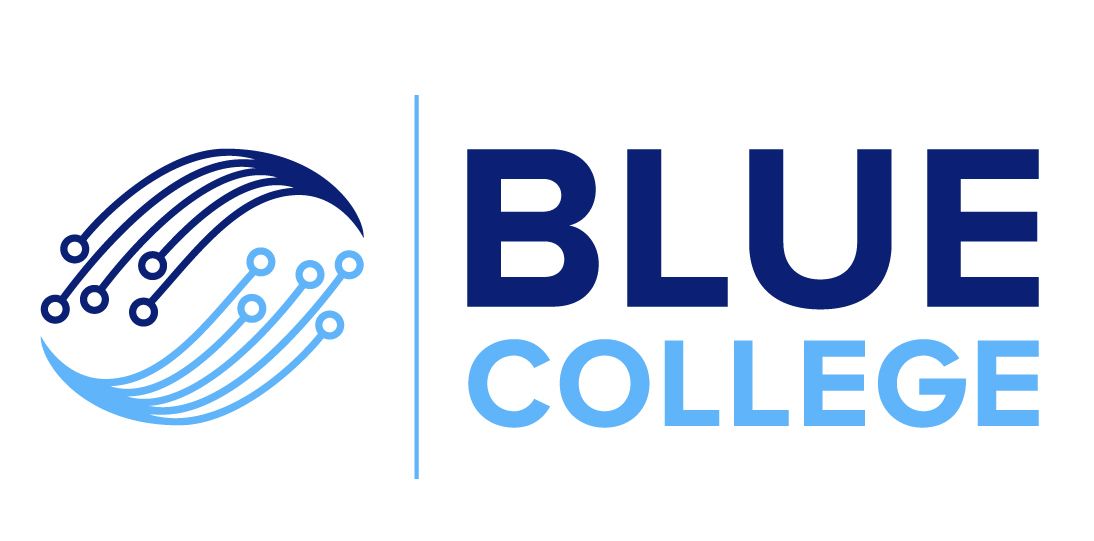When you think of cybersecurity, you might picture shadowy hackers or supercomputers racing against the clock. But did you know that the field is full of rewarding and surprising careers—each playing a heroic part in protecting our digital world? Whether you're curious about technology or looking to launch a dynamic career, here’s your inside look at diverse cybersecurity roles, how to get started, diploma pathways, and what to expect in terms of opportunity and income.
Why Cybersecurity Careers Matter
Every smart city, hospital, and online business relies on professionals who can defend against cybercriminals. As digital threats become more sophisticated, Canada is facing a critical shortage of skilled cybersecurity heroes. That’s where you come in!
5 Impact Careers in Cybersecurity
Our list comprises researched knowledge and careers sites. Cybersecurity has become a popular practice for demonstrating integrity in an organisation's online identity. Blue College of Water and Technology currently offers courses
1. Ethical Hacker (Penetration Tester)
2. Security Operations Centre (SOC) Analyst
3. Cyber Forensic Expert (Digital Forensics Specialist)
4. Security Consultant
5. Incident Responder
Most entry-level roles in cybersecurity are accessible with a relevant diploma or associate degree, sometimes in as little as one to two years of full-time study. Here’s how a diploma sets you up for success:
Hands-On Skills: Lab-based courses teach you to secure networks, investigate threats, and respond to real-world incidents.
Certifications: Many programs help you prepare for industry-recognised certifications such as CompTIA Security+, CEH, and CISSP.
Internships & Co-ops: Gain experience and make connections through work placements and industry projects.
Who Makes an Excellent Cybersecurity Hero?
Cybersecurity welcomes people with creative thinking, curiosity, logical problem-solving, and integrity. If you enjoy solving puzzles, learning new technologies, and helping others, you’ll find a place in this high-demand field.
Ready to Become a Cyber Hero?
There’s never been a better time to launch your future in cybersecurity—and Blue College is here to help you take the first step. Our Cybersecurity Diploma Program is designed to get you job-ready in as little as two years, with hands-on labs, certification prep, and industry connections to power your career.
To make your journey even more accessible, we invite you to join the Blue Horizon Scholarship Info session. Hear from cybersecurity experts Farokh Kakar and Munir Omer Zada, discover how to fund your education, and learn how you can turn your passion into a career that protects communities and industries worldwide.
Secure your spot at our upcoming info session, apply for funding, and take the first step toward becoming one of tomorrow’s most in-demand cybersecurity professionals—with Blue College by your side.
Why Cybersecurity Careers Matter
Every smart city, hospital, and online business relies on professionals who can defend against cybercriminals. As digital threats become more sophisticated, Canada is facing a critical shortage of skilled cybersecurity heroes. That’s where you come in!
5 Impact Careers in Cybersecurity
Our list comprises researched knowledge and careers sites. Cybersecurity has become a popular practice for demonstrating integrity in an organisation's online identity. Blue College of Water and Technology currently offers courses
1. Ethical Hacker (Penetration Tester)
- What They Do: Like digital detectives, ethical hackers use their skills to break into systems—legally—to find weaknesses before bad actors do. They think like hackers, but work for organisations to make computers, websites, and networks safer.
- Typical Annual Income: $70,000–$120,000.
- Entry Requirements: A cybersecurity diploma or degree, strong knowledge of networks and programming, and often certifications like CEH (Certified Ethical Hacker). See what they do.
- Why It’s Needed: Every business is a potential target; ethical hackers make security stronger by exposing flaws before real incidents occur.
2. Security Operations Centre (SOC) Analyst
- What They Do: SOC analysts are the watchful eyes of cybersecurity. As an SOC Analyst, you monitor systems 24/7, detect threats, analyse suspicious activity, and respond quickly to attacks to keep organisations secure.
- Typical Annual Income: $55,000–$95,000.
- Entry Requirements: A cybersecurity or network security diploma, familiarity with security information and event management (SIEM) tools, and analytical skills. See what they do.
- Why It’s Needed: As attacks become more frequent, continuous monitoring is crucial for spotting and preventing breaches before they escalate out of control.
3. Cyber Forensic Expert (Digital Forensics Specialist)
- What They Do: After a cyber incident, these specialists collect digital evidence, investigate how attacks happened, and help law enforcement bring cybercriminals to justice.
- Typical Annual Income: $70,000–$115,000.
- Entry Requirements: A diploma or degree in cybersecurity or computer science, detective-like curiosity, and certifications such as GCFA (GIAC Certified Forensic Analyst). See what they do.
- Why It’s Needed: As crime shifts online, legal cases depend on digital evidence—making cyber forensics crucial to solving cases and defending rights.
4. Security Consultant
- What They Do: Security consultants advise businesses on how to protect data, create policies, oversee risk assessments, and develop strategic defence plans.
- Typical Annual Income: $80,000–$140,000.
- Entry Requirements: Relevant diploma or degree, broad security experience, and up-to-date knowledge of regulations and technologies. See what they do
- Why It’s Needed: Every industry must protect sensitive data, requiring tailored advice from experts who understand both threats and opportunities.
5. Incident Responder
- What They Do: These are the emergency responders of cybersecurity, sprinting into action the moment a digital attack occurs. They contain breaches, recover data, and guide organisations through stressful situations.
- Typical Annual Income: $65,000–$110,000.
- Entry Requirements: Cybersecurity background, ability to stay calm under pressure, troubleshooting skills, and familiarity with digital forensics and recovery tools. See what they do
- Why It’s Needed: Fast action limits damage, preserves trust, and keeps the wheels of business turning—even in a crisis.
Most entry-level roles in cybersecurity are accessible with a relevant diploma or associate degree, sometimes in as little as one to two years of full-time study. Here’s how a diploma sets you up for success:
Hands-On Skills: Lab-based courses teach you to secure networks, investigate threats, and respond to real-world incidents.
Certifications: Many programs help you prepare for industry-recognised certifications such as CompTIA Security+, CEH, and CISSP.
Internships & Co-ops: Gain experience and make connections through work placements and industry projects.
Who Makes an Excellent Cybersecurity Hero?
Cybersecurity welcomes people with creative thinking, curiosity, logical problem-solving, and integrity. If you enjoy solving puzzles, learning new technologies, and helping others, you’ll find a place in this high-demand field.
Ready to Become a Cyber Hero?
There’s never been a better time to launch your future in cybersecurity—and Blue College is here to help you take the first step. Our Cybersecurity Diploma Program is designed to get you job-ready in as little as two years, with hands-on labs, certification prep, and industry connections to power your career.
To make your journey even more accessible, we invite you to join the Blue Horizon Scholarship Info session. Hear from cybersecurity experts Farokh Kakar and Munir Omer Zada, discover how to fund your education, and learn how you can turn your passion into a career that protects communities and industries worldwide.
- Date: August 24, 2025
- Time: 1:00 PM EST / 10:00 AM PST
Secure your spot at our upcoming info session, apply for funding, and take the first step toward becoming one of tomorrow’s most in-demand cybersecurity professionals—with Blue College by your side.


